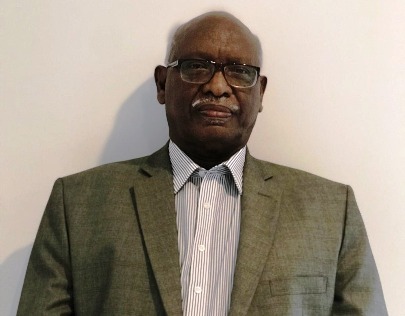Why Did the U.S. Impose Sanctions on the Army Commander?

The imposition of U.S. sanctions by the Biden administration just days before its departure was expected as a negative reaction from U.S. Secretary of State Antony Blinken. This followed Burhan’s refusal to accept his invitation to attend negotiations in Geneva, which Blinken intended to attend personally. This refusal was seen as a major challenge from a military leader whose country is embroiled in a war involving multiple states, with foreign forces supported by mercenaries from neighboring and distant countries, even transcontinental forces.
Those who dreamed of returning to power, relying on the support of the world’s strongest nation, saw their dreams shattered before their eyes. The Biden administration and its Secretary of State had already faced setbacks, and the Geneva negotiations were not the first blow to their plans. The U.S. was the architect of the “Framework Agreement,” introduced by Assistant Secretary of State Molly Phee. It was also behind efforts to expand the agreement’s base when the political leaders it relied upon failed to make any progress. Molly Phee then proposed the idea of a workshop organized by the Steering Committee of the Bar Association, led by a member of the Umma Party.
However, political forces failed to manage this initiative or broaden participation, insisting instead on the slogan “No to Political Overreach.” The “Forces of Freedom and Change – Central Council” believed they could lead the transitional period with the support of the so-called “Quad” and “Trilateral Mechanism,” led by the United States. However, their expectations were dashed, and they failed to make any progress.
This left Blinken feeling frustrated. The team that led the Framework Agreement phase—Molly Phee and U.S. Ambassador to Sudan John Godfrey—was replaced. Tom Perriello was appointed and began making multiple visits to meet with leaders of the “Taqaddum” Alliance. He attempted to pressure military and political leaders in Port Sudan and traveled to the capitals of countries involved in the alleged conspiracy, alongside the UAE and other actors working toward its success.
Perriello initially brandished threats but, upon realizing they were ineffective, resorted to a carrot-and-stick approach, which also failed to yield results. He requested a visit to Port Sudan under specific conditions, which was flatly rejected. He then sought meetings in Jeddah and Cairo to persuade them to attend the Geneva negotiations, but his requests were declined because of the UAE’s participation as an observer. Blinken personally contacted Burhan, believing that his intervention and declaration of attending the Geneva discussions would intimidate the military leadership into compliance. However, he did not receive the response he had hoped for.
This series of frustrations led to Blinken’s anger, and he waited until the end of his tenure to issue these sanctions.
Ironically, despite the U.S.’s democratic values and its history in crisis management, it has failed to learn from its past experiences. It seeks only to impose conditions on others, despite its history in Vietnam, Afghanistan, Chile, and other nations showing that leadership backed by its people cannot be defeated or subdued.
As Turkish President Erdogan said in an interview when asked about Turkey’s initiative for negotiations between Sudan and the UAE: “The people’s rejection of the negotiations cannot be overridden by Sudan’s administration.” Most of the Sudanese people aspire to a Sudan free from political or military militia involvement.
Nevertheless, the U.S. has spent vast sums on workshops, seminars, and conferences for a small group with no social base, aiming to elevate them above others under the guise of “civilian rule.” Who said the Sudanese people oppose civilian rule? They support civilian governance that arises from free elections, not a civilian model imposed by the U.S., as seen in Chile, where the U.S. orchestrated a coup against Salvador Allende and installed Augusto Pinochet.
Now, the U.S. seeks to elevate a number of political activists to positions of power with support from Britain, the UAE, and others. However, the Sudanese people are fully aware of this scheme. The U.S. sanctions imposed on the Commander-in-Chief of the Army will only strengthen the people’s resolve to defeat the militia, its allies, and its political wing—or force them to surrender and disarm entirely.
Such an outcome would completely transform the country’s political landscape. Defeating the militia and those who convinced it to stage a coup would be a defeat for a political project orchestrated by the “Quad” and “Trilateral Mechanism” under U.S. and British sponsorship.
Ironically, they rallied leftist factions, political activists, and others—not with aspirations for power but as pressure groups funded by Western organizations to be used as needed. May God grant us wisdom.



